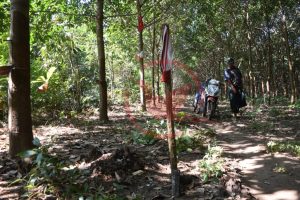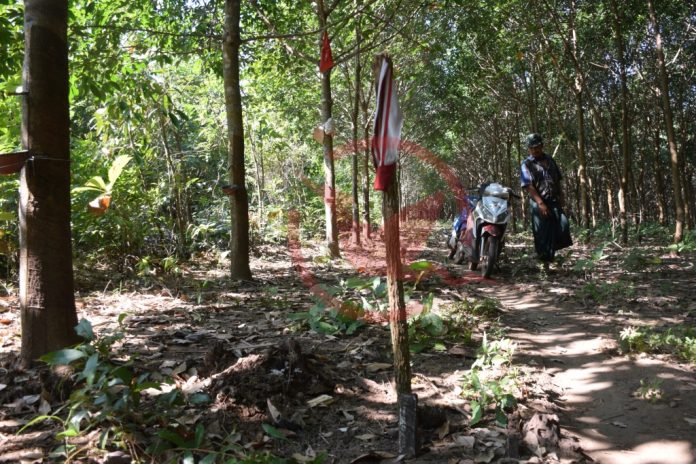Locals are worried they won’t receive adequate compensation for their rubber and seasonal fruit tree plantations after they are felled to set up power lines connecting Mon State’s capital to Myawaddy Town in Karen State.
“Last year, we did some land measuring. We measured land size and the length needed to set up electric power poles. This year, an official from the company will meet with the plantation owners and tell them which plantation will have its trees felled and how many. However, we don’t know yet whether we will get compensated,” said U Shwe Main, a villager and owner of a rubber plantation in Min Ywa Village.

“Rubber trees are perennial trees. If we calculate, each rubber tree can produce up to 8 pounds per year. The rubber plantation owners can profit from the rubber trees for at least 20 years. Therefore, one tree is worth up to 160,000 Kyat. For me, however, I just want 70,000 Kyat per tree,” said U Ngwe Tun, a rubber plantation owner.
Min Ywa Village is just one of the villages that the electric power lines will pass through. Surrounding that village, there are about 40 rubber plantations that the power line will disrupt. Overall, about 900 rubber trees will be cut down to set up for the cable lines and poles,” according to Bedok Co., ltd’s gathered list.
“We have to report our gathered list to the union minister of electric power. The electric power department has its compensation and inspection branch. That group will visit the site and decide upon the compensation. The compensation is not concerned with our company,” said U Aung Myo Thura, site engineer of Bedok Co. ltd.
The electric power line project from Mawlamyine to Mawaddy started in mid-2015 [by the Bedok Co., Ltd], and is set to implement an electric power line producing 230 KV, according to Bedok Co., Ltd.

